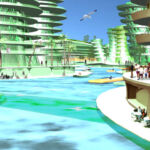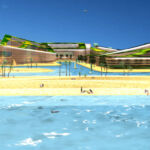Recycled Island: A Sustainable Habitat from Ocean Plastic
Project's Summary
Recycled Island is a pioneering research project spearheaded by WHIM architecture, dedicated to exploring the feasibility of creating a habitable floating island in the vast expanse of the Pacific Ocean. This ambitious initiative is not just about innovation; it is a response to the critical environmental crisis posed by plastic waste accumulating in our oceans. With a focus on three core objectives, Recycled Island aims to clean our seas, generate new land, and construct a sustainable habitat that can support human life.
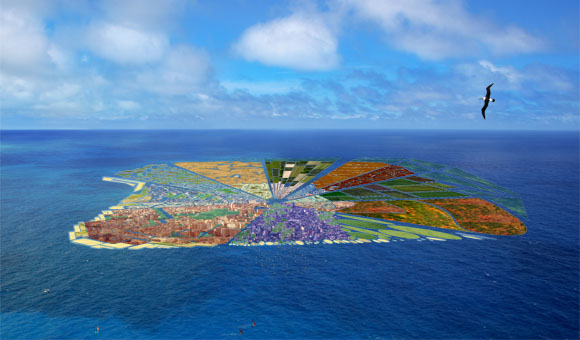
The project's primary mission revolves around addressing the overwhelming issue of plastic pollution. By harnessing the plastic debris currently floating in the Pacific Ocean, Recycled Island endeavors to recycle this waste and convert it into a functional and inhabitable floating entity. This transformative approach seeks to mitigate the detrimental effects of plastic waste on marine ecosystems while simultaneously offering a viable solution for repurposing materials that threaten aquatic life.
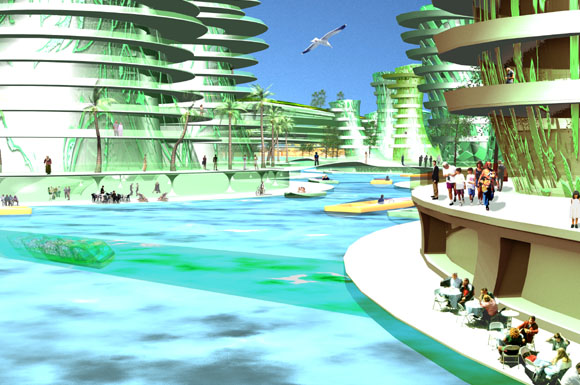
To bring this vision to life, Recycled Island integrates both constructive and marine technical principles. The dedicated team at WHIM architecture is diligently engaged in designing and constructing a sea-worthy island capable of withstanding the harsh conditions of the ocean. Utilizing state-of-the-art technologies alongside sustainable building practices, the project aims to create a floating structure that not only meets environmental standards but also showcases resilience in the face of nature's challenges.
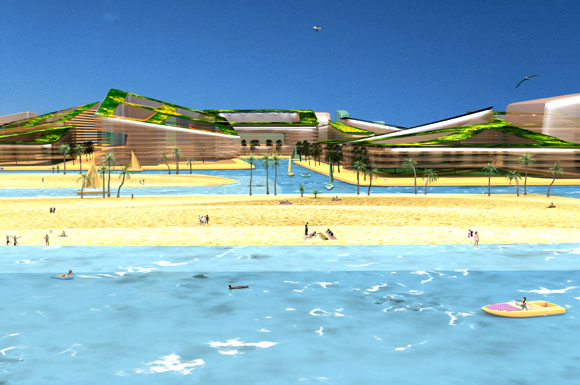
Beyond cleaning the ocean and recycling waste, Recycled Island presents an opportunity to address land scarcity, a growing concern in many parts of the world. By transforming recycled plastic into new land, the project envisions a future where waste no longer detracts from our environment but instead serves as a resource for creating livable spaces. This innovative concept aligns with the increasing demand for sustainable living solutions, providing a pathway to new habitats that harmonize with the natural world.
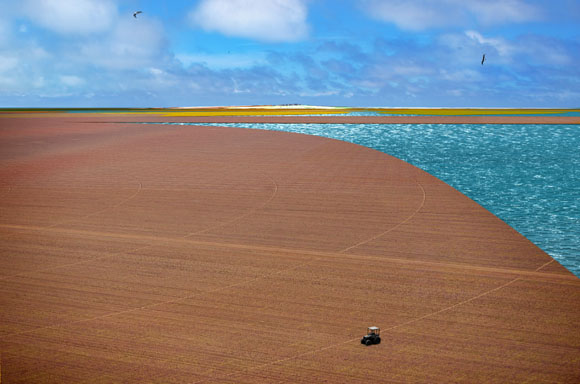
In essence, the Recycled Island initiative by WHIM architecture is more than just a project; it is a beacon of hope for the future of environmental sustainability. By combining renewable energy, efficient waste management, and eco-friendly technologies, the project aspires to construct a sustainable habitat that exemplifies the potential for coexistence with nature. Recycled Island challenges conventional notions of waste, illustrating how innovative thinking can transform challenges into opportunities for creating a better and more sustainable world.
Read also about the AQM Office - Modern Architecture in Shanghai project

